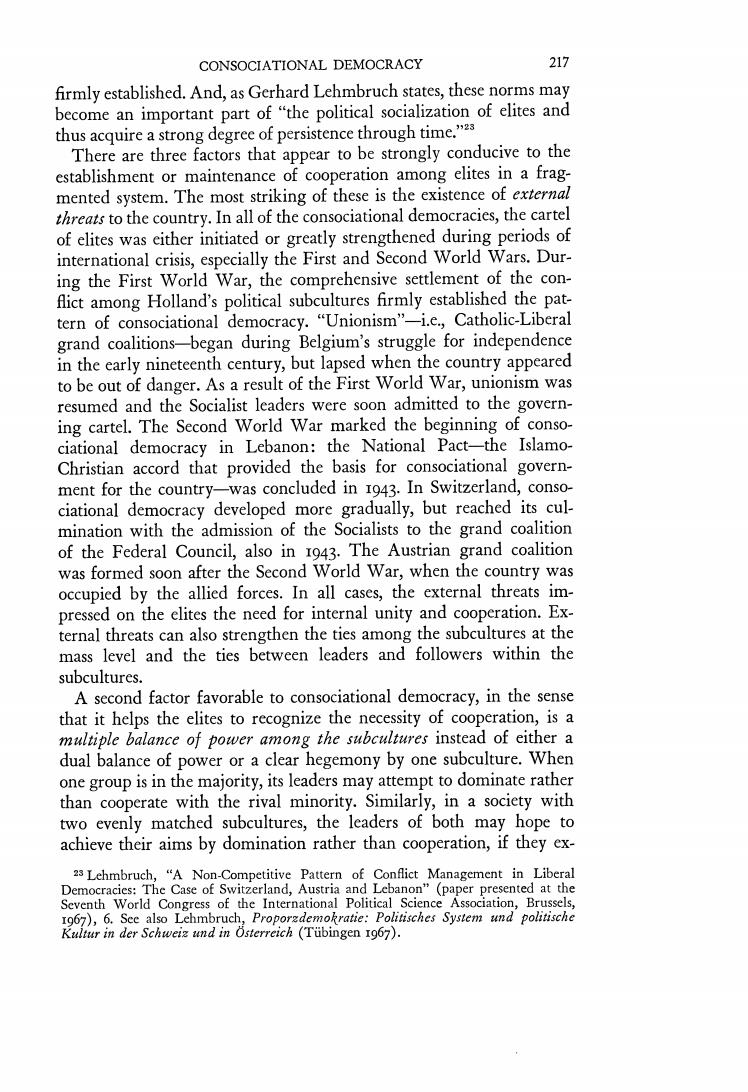正在加载图片...

CONSOCIATIONAL DEMOCRACY 217 firmly established.And,as Gerhard Lehmbruch states,these norms may become an important part of"the political socialization of elites and thus acquire a strong degree of persistence through time." There are three factors that appear to be strongly conducive to the establishment or maintenance of cooperation among elites in a frag- mented system.The most striking of these is the existence of external threats to the country.In all of the consociational democracies,the cartel of elites was either initiated or greatly strengthened during periods of international crisis,especially the First and Second World Wars.Dur- ing the First World War,the comprehensive settlement of the con- flict among Holland's political subcultures firmly established the pat- tern of consociational democracy."Unionism"-i.e.,Catholic-Liberal grand coalitions-began during Belgium's struggle for independence in the early nineteenth century,but lapsed when the country appeared to be out of danger.As a result of the First World War,unionism was resumed and the Socialist leaders were soon admitted to the govern- ing cartel.The Second World War marked the beginning of conso- ciational democracy in Lebanon:the National Pact-the Islamo- Christian accord that provided the basis for consociational govern- ment for the country-was concluded in 1943.In Switzerland,conso- ciational democracy developed more gradually,but reached its cul- mination with the admission of the Socialists to the grand coalition of the Federal Council,also in 1943.The Austrian grand coalition was formed soon after the Second World War,when the country was occupied by the allied forces.In all cases,the external threats im- pressed on the elites the need for internal unity and cooperation.Ex- ternal threats can also strengthen the ties among the subcultures at the mass level and the ties between leaders and followers within the subcultures. A second factor favorable to consociational democracy,in the sense that it helps the elites to recognize the necessity of cooperation,is a multiple balance of power among the subcultures instead of either a dual balance of power or a clear hegemony by one subculture.When one group is in the majority,its leaders may attempt to dominate rather than cooperate with the rival minority.Similarly,in a society with two evenly matched subcultures,the leaders of both may hope to achieve their aims by domination rather than cooperation,if they ex- 23 Lehmbruch,"A Non-Competitive Pattern of Conflict Management in Liberal Democracies:The Case of Switzerland,Austria and Lebanon"(paper presented at the Seventh World Congress of the International Political Science Association,Brussels, 1967),6.Sce also Lehmbruch,Proporzdemokratie:Politisches System und politische Kuitur in der Schweiz und in Osterreich (Tubingen 1967)